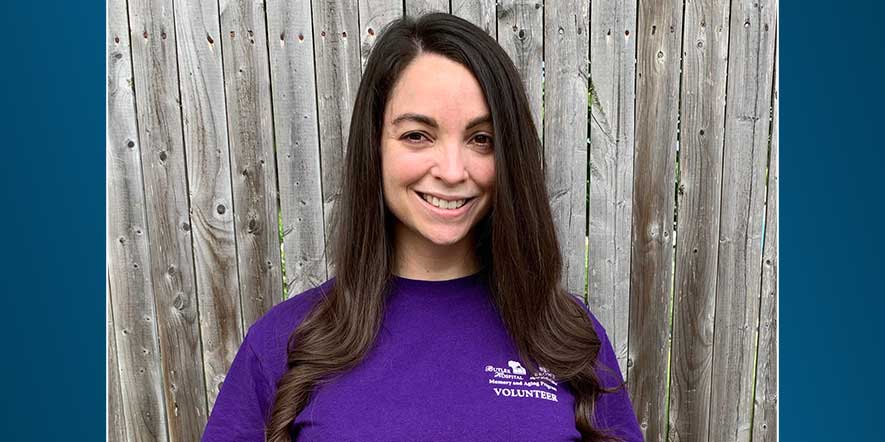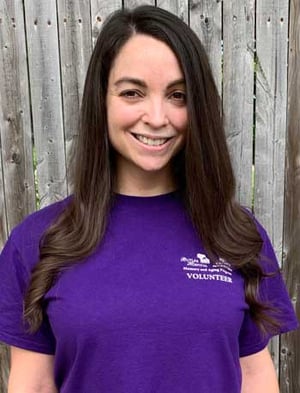 Family History, Personal Calling Prompt College Senior's Fight Against Alzheimer’s"
class="bg-img"
fetchpriority="high"
loading="eager"
decoding="async">
Family History, Personal Calling Prompt College Senior's Fight Against Alzheimer’s"
class="bg-img"
fetchpriority="high"
loading="eager"
decoding="async">

Thanks in part to that internship, the recent college grad now knows exactly what will come next for her: graduate studies in Psychology and a PhD in Neuropsychology in preparation for a career researching Alzheimer’s disease and dementia.
“Ever since I started at RIC in Psychology I’ve had it in the back of my mind that this is what I want to do,” McManus says.
I have a family history of Alzheimer’s disease on my father’s side and a long line of family members who‘ve had the disease. So I’ve seen first-hand how devastating the effects of it can be, not only on the patient but on family members as well. It’s made me feel a moral obligation to help fight this disease and it has given me a sense of purpose to help however I can.”
So when McManus had the opportunity to do an internship, she says the Memory and Aging Program was her first choice.
“I’d been keeping an eye on what the Memory and Aging Program was doing for a while, just out of interest and thought an internship would be the perfect opportunity to get involved. It was the first place I reached out to. I kind of went all in on it and was lucky enough to hear back right away.”
McManus began her Internship in January, working about 10 hours per week at the program. She spent much of her time assisting in the program’s outreach office and working with Butler’s Alzheimer’s Prevention Registry, a database of people who’ve indicated they’re interested in participating in research studies.
“I would reach out by email or phone to trial participants and potential participants to answer any questions and help them to enroll in the registry if they needed assistance,” McManus says. “I also did a lot of shadowing of the research staff, observing of cognitive testing and learning about the tools involved. I really wanted to be available to anyone who needed help, so I did a lot of everything, really.”
McManus says her internship was cut short due to the outbreak of COVID-19, but in the time that she spent at the program she says the thing that struck her most was how immediately welcoming the entire team was, to both her and to study participants and their families.
“They all made it so easy for me to just settle in and feel comfortable. It was just so clear that they wanted me to get as much as possible out of the experience. I couldn’t have asked for more support. Even though it was such a short amount of time, I really did get an immense amount of knowledge out of it; things I couldn’t have learned in a classroom,” McManus says.
“They understand the experience and are more than willing to have a personal touch. They treat everybody as an individual. You’re not just a patient there, you’re a person who has individual thoughts and emotions about this and you’re not going to be alone, no matter what.”
McManus says she looks forward to returning to the program as a volunteer as soon as COVID-19 restrictions are lifted. She’ll begin her graduate studies in Psychology at RIC next year and looks forward to joining the fight against Alzheimer’s as a neuroscientist someday – maybe even at the Memory and Aging Program.
“I can absolutely see myself working there one day and would love to apply someday to be a research assistant,” she says. “But regardless, I’ll volunteer there as long as they’ll have me.”
To learn more about the Memory and Aging Program and how you can get involved, visit butler.org/memory.
Disclaimer: The content in this blog is for informational and educational purposes only and should not serve as medical advice, consultation, or diagnosis. If you have a medical concern, please consult your healthcare provider or seek immediate medical treatment.
Copyright © 2023 Care New England Health System